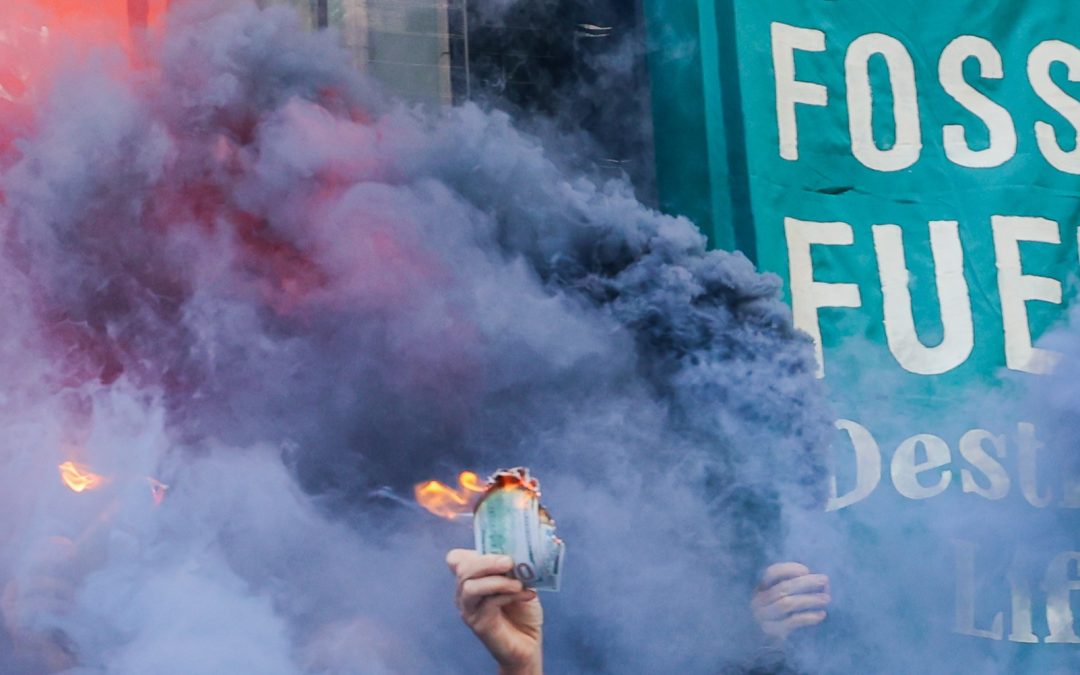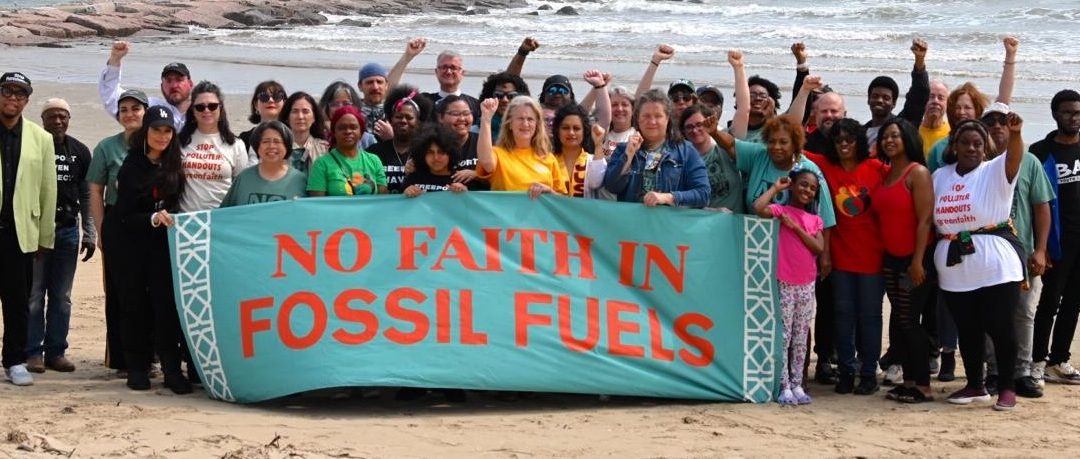By Eloise Reid
Eloise Reid is the Gulf South Organizer with GreenFaith, based in New Orleans, LA.
Last week, I had the honor of organizing Katrina 20: Faith, Climate & Justice – A Moral Witness Dialogue alongside Karenna Gore of the Center for Earth Ethics, at the historic Tate, Etienne, and Prevost (TEP) Center in New Orleans. This gathering marked the twentieth anniversary of Hurricane Katrina and was part of the Global Ethical Stocktake, a process feeding into the UN climate negotiations at COP30 in Brazil later this year.
The TEP Center, founded by the Leona Tate Foundation for Change in the former McDonogh 19 Elementary School, is a sacred site of civil rights history. It was here that Leona Tate, Gail Etienne, and Tessie Prevost—three six-year-old Black girls—integrated the school in 1960, escorted by federal marshals through angry white mobs. Holding Katrina 20 in this space reminded us that the fight for climate justice is inseparable from the struggle for racial justice, and that the courage of past generations continues to guide us in the face of today’s crises.
We came together as faith leaders, frontline organizers, and community members to reflect on the legacy of Katrina and bear witness to the ongoing struggle for justice in the Gulf South. The truth we lifted up is one we know too well: these storms, floods, and pollution crises are not “natural disasters.” They are the result of political and corporate choices that sacrifice our communities for profit.
The dialogue was co-moderated by Karenna Gore and Jacqui Patterson of the Chisholm Legacy Project, and featured testimony from a powerful lineup of leaders: Dr. Angela Chalk, Founder & Executive Director, Healthy Community Services, Ms. Sharon Lavigne, Executive Director & Founder, RISE St. James, Bette Billiot, Community Organizer, LA Liberation & Sovereignty Collection; Co-Director, Bayou Youth Leadership Project, Scott Eustis, Community Science Director, Healthy Gulf, Anthony Giancatarino, Co-Director/Strategy Partner, Taproot Earth, Chenier “Klie” Kliebert, Founding Director, Imagine Water Works; Creole Indigenous Climate Leader, Gregory N. Swafford, Southeast Louisiana Organizer, Healthy Gulf; Founding Director, Culture of Cleanliness, Toi Carter, Executive Director, Louisiana Just Recovery Network; Katrina Survivor, and Ms. Darrilyn Turner, Executive Director, Zion Travelers Cooperative Center
We were also joined by former Vice President Al Gore, whose presence and remarks acknowledged both the devastation and the organizing power that have defined the Gulf South over the past two decades. His words underscored the global significance of Gulf South leadership and affirmed the urgency of climate action rooted in justice.
The program opened with music from local jazz musicians, grounding us in the soul of New Orleans, and closed with a moving poem by Artis Burney, a Mississippi poet whose words carried both lament and vision. Local food from Sweet Anoni’s Catering nourished us as we shared stories, grief, and commitments. Our audience members and speakers co-created an altar which grounded us in our collective spirituality.
For me, this work is both deeply personal and deeply spiritual. I have lived with asthma since childhood, and I know what it feels like when the air itself makes breathing hard. In high school, I started an environmental club because I could see—even as a teenager—that the climate crisis was not only about the planet, but about people: who gets clean air, who doesn’t; who gets to rebuild, who is left behind. Over time, I came to understand that this is environmental racism—and that our fight for climate justice is inseparable from the struggle for racial justice and human dignity.
As I organized this event, I carried with me the memory of Katrina as both devastation and resistance. The storm exposed the depth of racial inequity in this country, but it also revealed the strength of communities who organized, resisted, and rebuilt with courage and faith. Two decades later, those lessons still guide us.
In my work with GreenFaith, I lean on spirituality not as something abstract, but as a grounding force. Faith reminds us that justice is sacred. That resistance can itself be a form of prayer. That telling the truth in community, through story and song and witness, is an act of healing. At Katrina 20, I felt this sacred power in the room—elders and youth, pastors and organizers, scientists and poets—holding each other in grief and hope.
The witness shared at the TEP Center will not stay in New Orleans. It will travel to COP30 in Brazil, where world leaders will again debate how to respond to the climate crisis. Our message is clear: frontline communities in the Gulf South are not sacrifice zones. Our lives, our stories, our faith, and our future must be part of the path forward.
Katrina 20 was remembrance, but it was also resistance. It was a testament to the power of people who refuse to be forgotten and who believe, with every breath, that another world is possible.




